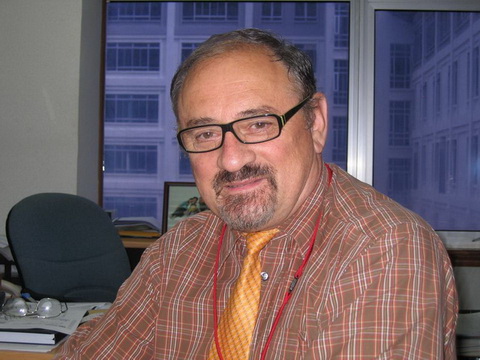KUCHING – Swinburne University of Technology Sarawak Campus will have one of the highest number of engineering teaching staff with doctorates in the country by year-end, said the head of the university’s School of Engineering and Science, recently.
“By the end of 2008, about 75 percent of our teaching staff for degree courses will have PhDs,” he said.
“This will make Swinburne Sarawak one of the strongest in the field of engineering in Malaysia,” Vakhguelt said.
Currently, about 65 percent hold doctorates and they hail from Australia, Britain, India, Iraq, Malaysia and Singapore.
Swinburne Sarawak, the only international branch campus of Swinburne University of Technology in Melbourne, Australia, offers an array of engineering courses with a strong emphasis on practical training.
It offers majors in civil, mechanical, electrical and electronics, robotics and mechatronics, electronics and computer systems, telecommunications and network engineering.
It also offers double degrees: civil engineering/bachelor of business, mechanical engineering/bachelor of business, electronics and computer systems/computer science and software engineering, and robotics and mechatronics/computer science and software engineering.
“Our engineering courses focus strongly on practical work. In some subjects practical sessions comprise about 60 percent,” says Vakhguelt, so students can expect to spend several hours of hands-on work at its laboratories or workshops for each subject.
The practical aspect is designed to prepare students for real work and give them a feel of what they will be doing in their career, explains the Russian-born professor.
“The more they practice what they learn, the better they will be at their jobs,” says Vakhguelt, who was a senior academic for many years at Tomsk State University in Russia.
All engineering students must complete a compulsory 12-week industry-related experience module called Professional Experience in Engineering.
This involves practical experience in an engineering environment outside the teaching establishment, classes and activities on professional ethics and conduct, industry visits and inspections, industry-based projects, industry research for feasibility studies and study of industry policies, processes, practices and benchmarks.
Students may opt for six- or 12-month vocational training called Industry-Based Learning, pioneered by Swinburne in 1963, where they will be on attachment with a company.
“The industry exposure gives students an opportunity to put into practice what they have learnt and gain some experience in dealing with real-life work issues and problems,” says Vakhguelt.
When the student graduates, he or she will be awarded an additional certificate to endorse the practical training, making it highly valuable.
Swinburne Sarawak also offers the Swinburne Foundation Studies (Engineering/Science). Besides the range of engineering majors, completion of this course allows the student to pursue the Bachelor of Science (Biotechnology) which will be offered next year.
For more information on engineering courses, contact CT Academic Services or L and P Consultant Services. CT Academic Services holds information sessions every Monday and Wednesday while L and P Consultant Services have theirs every Tuesday and Thursday.
Details can also be obtained from Dayang Yusliza of Swinburne Sarawak at 019-8869 661.


